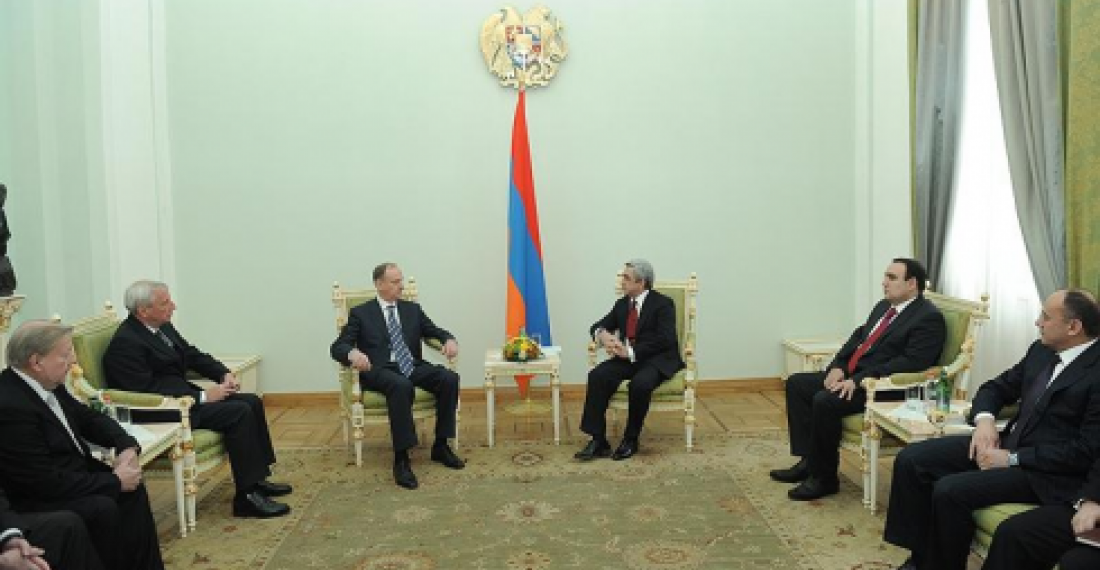The President of Armenia Serzh Sargsyan yesterday met the Secretary of the Russian National Security Council, Nikolai Patrushev, who is on a visit to Yerevan. The Nagorno-Karabakh conflict, regional issues and bilateral relations were discussed during the meeting, according to the Press Service of the Armenian President.
At a meeting later with officers of the Russian military base in Armenia, Patrushev said that "We have an alliance with Armenia, and we support each other practically in all areas and jointly solve problems we encounter." "This allows us to minimise costs and solve our tasks as effectively as possible," he added."On the whole, the situation in Russia and Armenia is absolutely normal and does not require any special measures. We must control it and make corrections if necessary," Patrushev said.
"In addition to analytical and other work, our Security Councils are also engaged in inter-departmental activities," he said, adding that officials from different, mainly power-wielding, ministries and agencies have come with him to Armenia. "Work becomes more targeted when the interests of agencies are interconnected," he stressed. Patrushev said the purpose of the visit is to coordinate issues at the inter-departmental level.
Earlier this week, Russian First Deputy Prime Minister Viktor Zubkov visited Armenia to discuss economic cooperation. During his visit he noted that trade turnover between the two countries in 2011 had reached one billion U.S. dollars.
source: commonspace.eu with the Press Service of the President of Armenia and Itar-Tass
photo: The President of Armenia with the Secretary of the National Security Council of the Russian Federation, Nikolai Patrushev and his delegation in Yerevan on 9 February 2012 (picture courtesy of the Press Service of the President of Armenia)







